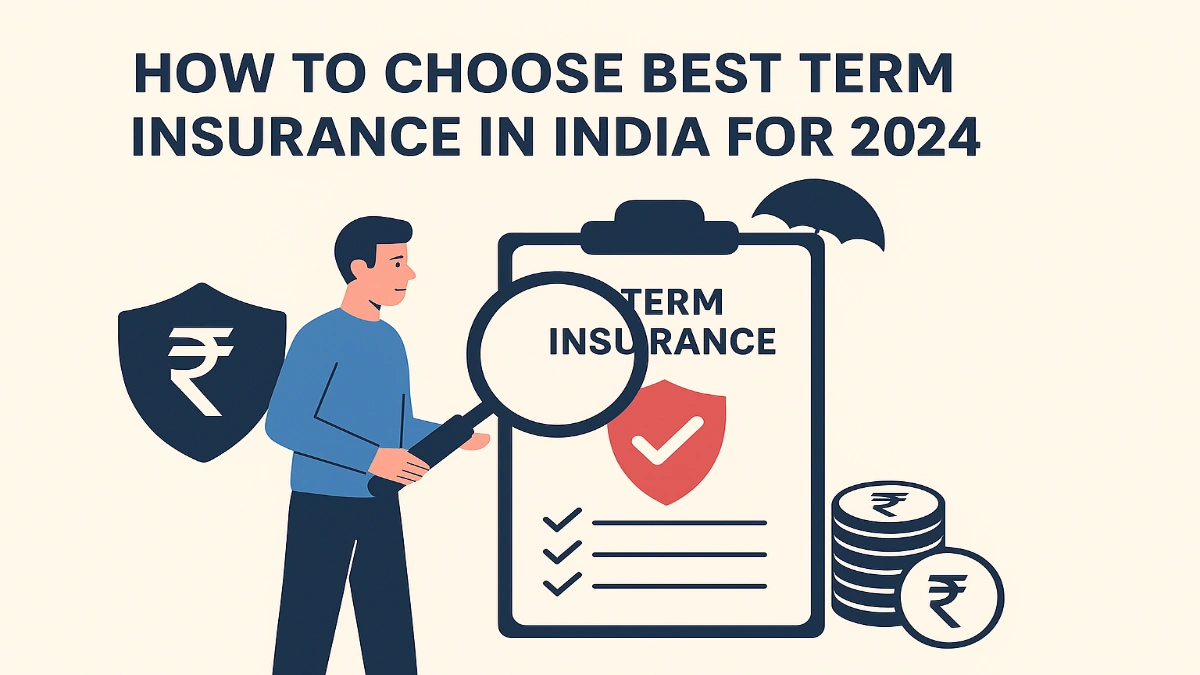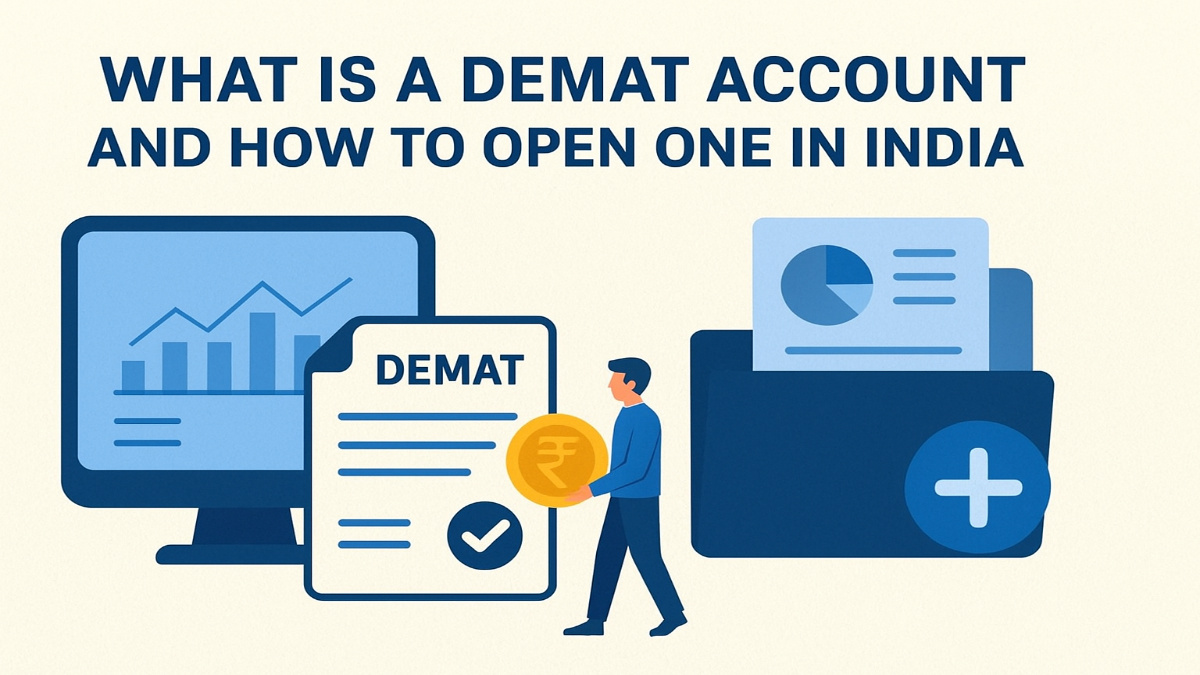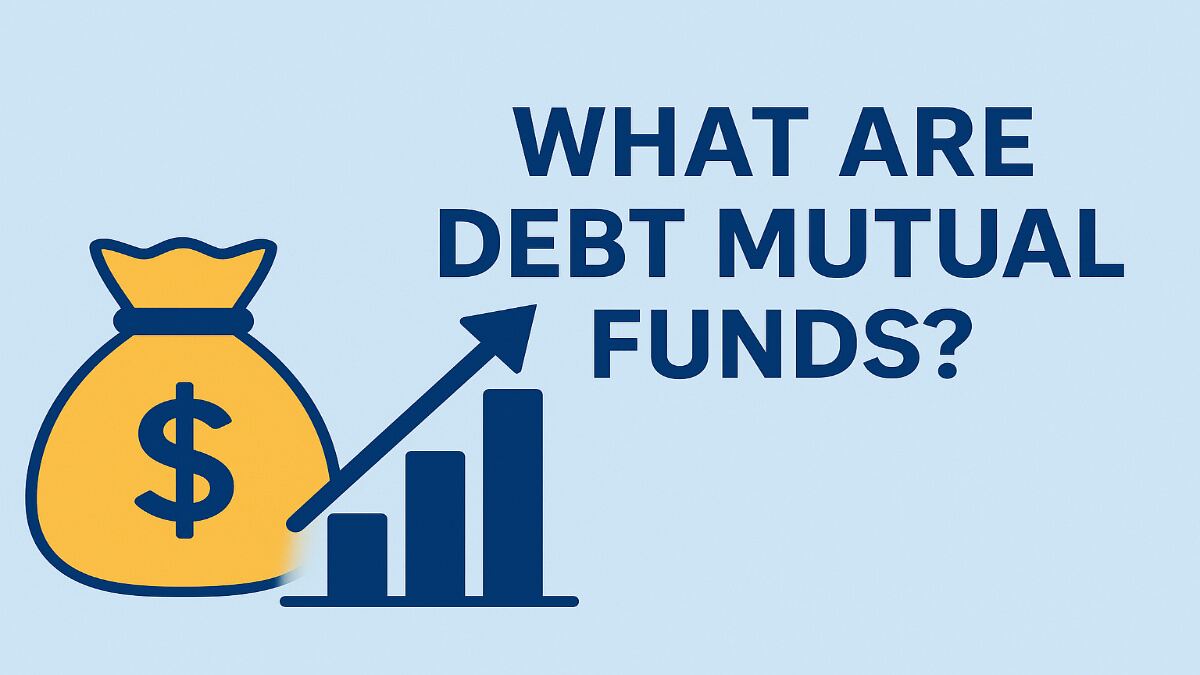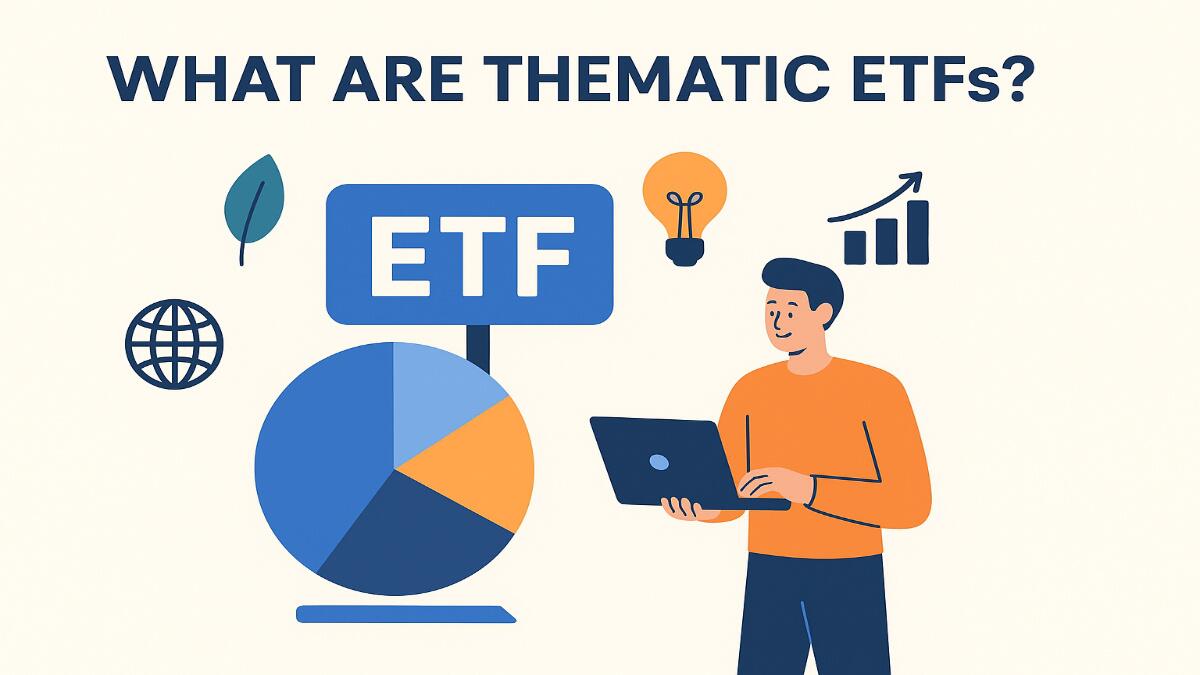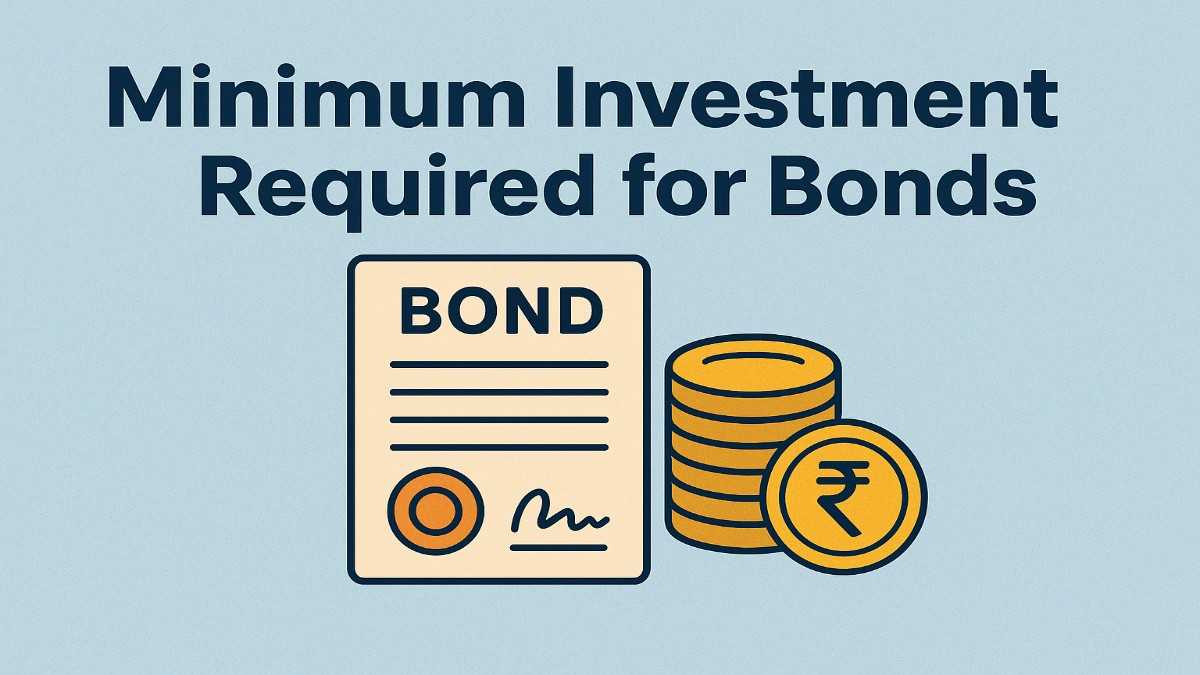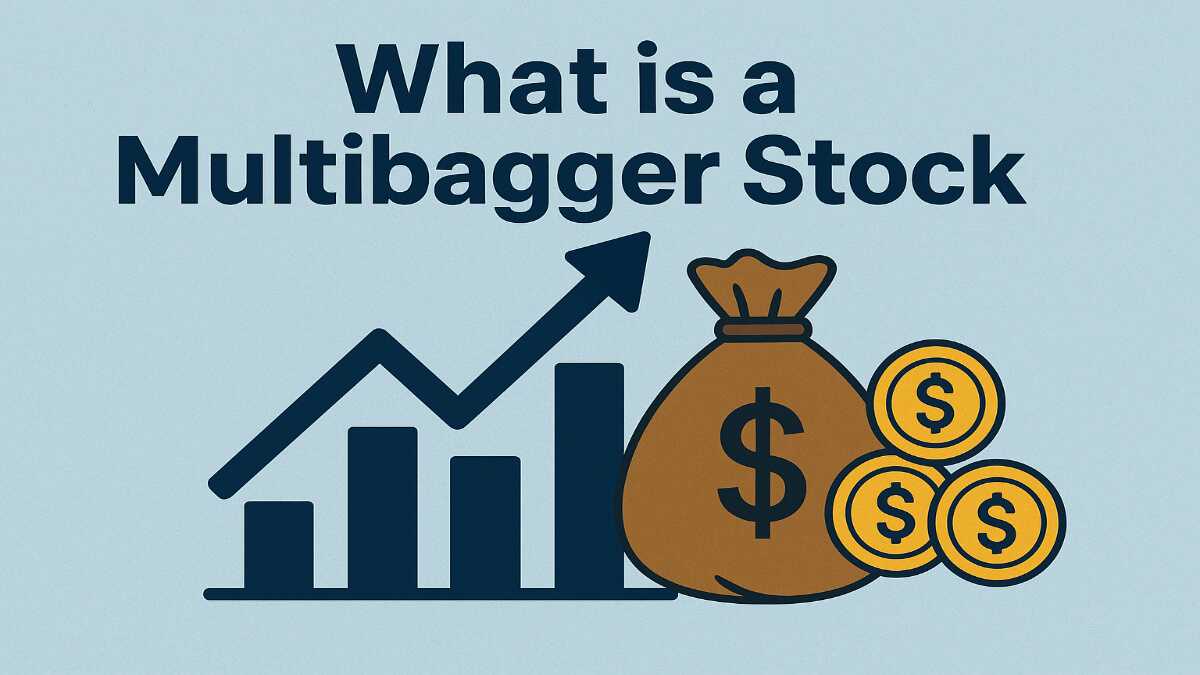When it comes to investing, most people in India think about stocks, mutual funds, or fixed deposits. But there’s another investment option that’s just as important and often overlooked: bonds. If you’re new to investing, you might be wondering, “What are bonds?” Don’t worry—this article will break it down for you in simple terms, explaining everything you need to know about bonds in a way that feels like a conversation with a friend. By the end, you’ll understand what bonds are, how they work, why they matter, and how you can use them to grow your wealth in India. Let’s dive into this beginner’s guide to bonds”What Are Bonds? The Basics Explained”
Table of Contents
What Are Bonds?
So, what are bonds? In simple words, a bond is like a loan you give to a borrower, such as a company or the government. When you buy a bond, you’re lending money to the issuer (the borrower), and in return, they promise to pay you interest regularly and return your principal (the original amount you lent) when the bond matures. Think of it like lending money to a friend who agrees to pay you back with some extra cash as a thank-you.”What Are Bonds? The Basics Explained”
Bonds are considered a safer investment compared to stocks because they offer predictable returns. In India, bonds are popular among investors who want steady income and lower risk. Whether you’re saving for a big goal like buying a house or planning for retirement, understanding what bonds are can help you make smarter financial choices.
How Do Bonds Work?
To understand what bonds are, let’s look at how they work. When you buy a bond, you’re essentially buying a piece of debt. Here’s a simple breakdown:
- You Buy the Bond: You pay a certain amount to the issuer, say ₹10,000. This is called the face value or principal.
- You Earn Interest: The issuer pays you interest (called a coupon) periodically, like every six months or yearly. For example, if the bond has a 6% annual coupon rate, you’ll get ₹600 per year.
- Bond Matures: After a set period (say 5 or 10 years), the bond “matures,” and the issuer returns your ₹10,000.
- You Profit: Over the bond’s life, you earn the interest payments, and at maturity, you get your initial investment back.
This process makes bonds a reliable way to earn regular income while keeping your money relatively safe. But what are bonds in terms of types, and how do they differ? Let’s explore.
Types of Bonds Available in India
In India, there are several types of bonds you can invest in, each with its own features. Knowing what bonds are available can help you pick the right one for your goals. Here are the main types:
1. Government Bonds
These are issued by the Government of India or state governments. They’re considered the safest because the government backs them. Examples include:
- Sovereign Gold Bonds: Linked to the price of gold, these are great if you want to invest in gold without owning physical gold.
- Treasury Bills: Short-term bonds with maturities of less than a year.
- Government Securities (G-Secs): Long-term bonds with fixed interest rates.
2. Corporate Bonds
These are issued by companies to raise funds. They offer higher interest rates than government bonds but come with slightly more risk. Corporate bonds can be issued by private companies or public sector undertakings (PSUs).
3. Tax-Free Bonds
These bonds, often issued by government-backed institutions like NHAI or REC, offer tax-free interest income, making them attractive for high-income earners.
4. Municipal Bonds
Issued by local governments or municipal corporations, these fund projects like roads or water supply. They’re less common but gaining popularity in India.
5. Zero-Coupon Bonds
These bonds don’t pay regular interest. Instead, you buy them at a discount and get a lump sum at maturity. For example, you might buy a bond for ₹8,000 and get ₹10,000 when it matures.
6. Convertible Bonds
These can be converted into company shares after a certain period, offering a mix of debt and equity benefits.
Understanding what bonds are in terms of their types helps you choose the right one based on your risk appetite and financial goals.
Why Should You Invest in Bonds?
Now that you know what bonds are, you might be wondering why you should consider them. Here are some reasons why bonds are a great investment option in India:
1. Safety
Government bonds, especially, are low-risk because the government is unlikely to default. Even corporate bonds from reputable companies are relatively safe.
2. Regular Income
Bonds provide fixed interest payments, making them ideal for those who want a steady cash flow, like retirees or conservative investors.
3. Diversification
Adding bonds to your portfolio balances the risk of volatile investments like stocks. If the stock market crashes, bonds often remain stable.
4. Tax Benefits
Some bonds, like tax-free bonds, offer tax-exempt interest, which can save you money if you’re in a high tax bracket.
5. Flexibility
With various types of bonds and maturities, you can choose options that suit your short-term or long-term goals.
So, what are bonds if not a versatile tool for building wealth safely? Let’s look at how you can start investing in them.
How to Invest in Bonds in India
Investing in bonds is easier than you might think. Here’s a step-by-step guide to help you get started:
Step 1: Set Your Goals
Decide why you’re investing in bonds. Are you looking for safety, regular income, or tax savings? Your goals will determine the type of bond you choose.
Step 2: Open a Demat Account
Most bonds in India are traded electronically, so you’ll need a demat account. You can open one with a bank or a brokerage firm.
Step 3: Research Bonds
Look for bonds that match your goals. Check the issuer’s credit rating (like AAA or AA) to assess risk. Higher-rated bonds are safer but may offer lower interest.
Step 4: Buy Bonds
You can buy bonds through:
- Primary Market: Directly from the issuer during the initial offering.
- Secondary Market: Through stock exchanges like BSE or NSE.
- Mutual Funds: Invest in bond funds if you want professional management.
Step 5: Monitor Your Investment
Keep track of interest payments and market conditions. If you invest in corporate bonds, stay updated on the company’s financial health.
Understanding what bonds are and how to invest in them can open up new opportunities for growing your wealth.
Risks of Investing in Bonds
While bonds are generally safe, they’re not risk-free. Here are some risks to consider when exploring what bonds are:
1. Interest Rate Risk
If interest rates rise, the value of existing bonds falls, as newer bonds offer higher rates.
2. Credit Risk
If the issuer (especially a company) faces financial trouble, they might default on interest or principal payments.
3. Inflation Risk
If inflation rises, the fixed interest from bonds might not keep up with rising prices, reducing your real returns.
4. Liquidity Risk
Some bonds, especially corporate ones, may be hard to sell quickly in the secondary market.
By understanding what bonds are and their risks, you can make informed decisions and avoid surprises.
Bonds vs. Other Investments

What Are Bonds?
To fully grasp what bonds are, it helps to compare them with other popular investments in India:
Bonds vs. Fixed Deposits (FDs)
- Returns: Bonds often offer higher returns than FDs, especially corporate bonds.
- Safety: Government bonds are safer than FDs, which depend on the bank’s stability.
- Liquidity: Bonds can be sold in the secondary market, while FDs have lock-in periods.
Bonds vs. Stocks
- Risk: Stocks are riskier but offer higher potential returns. Bonds are more predictable.
- Income: Bonds provide regular interest, while stocks pay dividends (if any).
- Growth: Stocks can grow significantly, while bonds focus on steady income.
Bonds vs. Mutual Funds
- Management: Bond mutual funds are managed by professionals, while individual bonds require your research.
- Risk: Mutual funds diversify risk across many bonds, but individual bonds depend on one issuer.
Knowing what bonds are in comparison to other options helps you decide where they fit in your portfolio.
Tax Implications of Bonds in India
Taxes can affect your bond returns, so let’s break down what bonds are in terms of taxation:
- Interest Income: Taxed as per your income tax slab, except for tax-free bonds.
- Capital Gains: If you sell a bond before maturity at a profit, you’ll pay capital gains tax. Short-term gains (less than 3 years) are taxed as per your slab, while long-term gains are taxed at 20% with indexation.
- Tax-Free Bonds: Interest is exempt from tax, making them attractive for high earners.
Always consult a tax professional to understand how bonds fit into your tax planning.
Who Should Invest in Bonds?
Bonds are suitable for various types of investors. Here’s who can benefit from understanding what bonds are:
- Retirees: Bonds provide regular income for living expenses.
- Conservative Investors: Those who prioritize safety over high returns.
- Tax-Savvy Investors: Tax-free bonds are great for high-income individuals.
- Diversifiers: Investors looking to balance risky assets like stocks.
No matter your financial stage, bonds can play a role in your investment strategy.
Common Myths About Bonds
There are some misconceptions about what bonds are. Let’s debunk a few:
Myth 1: Bonds Are Only for Old People
Bonds are for anyone seeking stability or income, not just retirees.
Myth 2: Bonds Are Always Safe
While government bonds are low-risk, corporate bonds can carry significant risk.
Myth 3: Bonds Don’t Offer Good Returns
Some bonds, like high-yield corporate bonds, can offer attractive returns compared to FDs.
Myth 4: Bonds Are Hard to Understand
As this guide shows, bonds are straightforward once you know the basics.
Clearing up these myths helps you see what bonds are in their true light.
How to Choose the Right Bond
With so many options, how do you pick the right bond? Here are some tips to understand what bonds are best for you:
- Assess Risk: Choose government bonds for safety or corporate bonds for higher returns with more risk.
- Check Maturity: Short-term bonds (1-3 years) suit immediate needs, while long-term bonds (5-10 years) are for bigger goals.
- Compare Yields: Look at the coupon rate and yield to maturity (YTM) to gauge returns.
- Research the Issuer: For corporate bonds, check the company’s credit rating and financial health.
- Consider Taxes: Opt for tax-free bonds if you’re in a high tax bracket.
By aligning your choice with your goals, you can make the most of what bonds are.
The Role of Bonds in a Portfolio
Bonds play a crucial role in a balanced investment portfolio. Here’s how they help:
- Stability: Bonds reduce volatility when stocks or other assets dip.
- Income: Regular interest payments provide cash flow.
- Preservation: Bonds protect your capital, especially government bonds.
- Hedging: Bonds can act as a hedge against economic uncertainty.
Understanding what bonds are and their role can help you create a well-rounded portfolio.
Bonds and the Indian Economy
In India, bonds are closely tied to the economy. For example:
- Government Bonds: Fund infrastructure projects like highways and railways.
- Corporate Bonds: Help companies expand, creating jobs and growth.
- Interest Rates: The Reserve Bank of India’s (RBI) policies affect bond yields.
By investing in bonds, you’re not just growing your wealth—you’re supporting India’s development.
Getting Started with Bonds Today
Ready to explore what bonds are and start investing? Here’s a quick action plan:
- Learn more about specific bonds, like Sovereign Gold Bonds or tax-free bonds.
- Open a demat account if you don’t have one.
- Start small with government bonds for safety.
- Consult a financial advisor for personalized advice.
Bonds are a fantastic way to build wealth steadily, and now that you know what bonds are, you’re ready to take the next step.
FAQs
What are bonds in simple terms?
Bonds are loans you give to a government or company. In return, you get regular interest and your money back when the bond matures.
Are bonds safe investments?
Government bonds are very safe, while corporate bonds carry some risk depending on the issuer’s financial health.
Can I lose money on bonds?
Yes, if interest rates rise, bond prices may fall, or if the issuer defaults. However, government bonds are low-risk.
How do I buy bonds in India?
You can buy bonds through a demat account on stock exchanges, directly from issuers, or via bond mutual funds.
What are tax-free bonds?
These are bonds where the interest income is exempt from tax, often issued by government-backed institutions.
How are bonds different from stocks?
Bonds provide fixed interest and are less risky, while stocks offer potential growth but with higher volatility.
Can I sell bonds before maturity?
Yes, you can sell bonds in the secondary market, but the price may vary based on market conditions.
What is a bond’s yield?
Yield is the return you earn on a bond, factoring in interest and any price changes if sold before maturity.
Are bonds good for young investors?
Yes, bonds can diversify a portfolio and provide stability, even for young investors.
How do I know which bond to choose?
Consider your risk tolerance, investment goals, and the bond’s issuer, maturity, and yield.
This beginner’s guide to what bonds are should give you a clear starting point. Whether you’re a new investor or looking to diversify, bonds offer a reliable way to grow your money in India. Start exploring today, and watch your financial future take shape!
Disclaimer: Moneyjack.in provides general financial information for educational purposes only. We are not financial advisors. Content is not personalized advice. Consult a qualified professional before making financial decisions. We are not liable for any losses or damages arising from the use of our content. Always conduct your own research.



